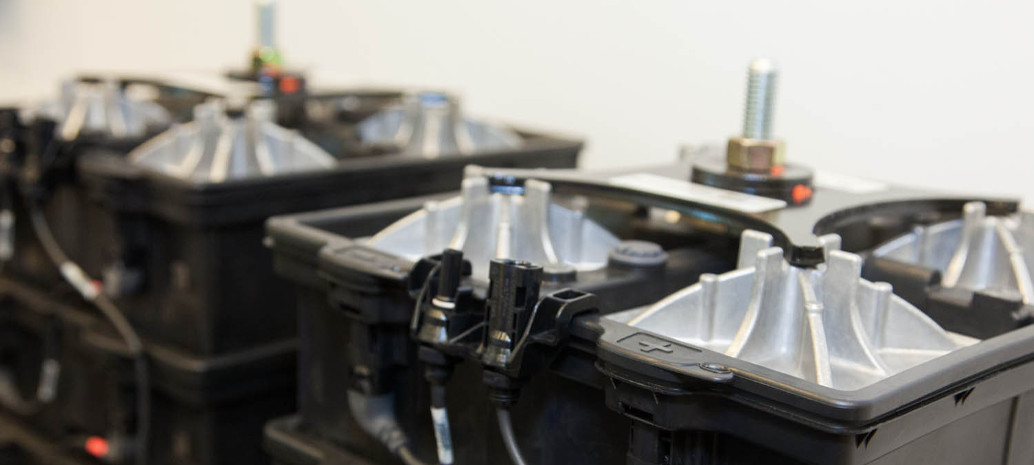LeydenJar Technologies BC, a start-up company and spin off from Dutch research center ECN, has developed a new pouch-cell prototype battery that it claims is capable of offering a 50% increase in storage capacity for rechargeable lithium-ion batteries.
The prototype could serve as a major step-forward in proving that a new technology can work when applied at large scale. LeydenJar Technologies reached the 100th cycle in a prototype pouch cell with a constant capacity of 1,000 mAh/g. Furthermore, it has developed li-ion coin cells that cycle at high capacities, between 1,000 – 2,000 mAh/g, with more than 400 ongoing cycles.
Pure silicon anode technology has the advantage of having a previously unseen impact on energy density of lithium-ion batteries, alongside replacing only the graphite anode with a pure silicon version. The technology was invented by ECN using a roll-to-roll PECVD machine that has the capacity to scale up to mass production.
The tech will be developed by LeydenJar Technologies in two stages, firstly as a pouch cell prototype with a targeted energy density of 1,200 Wh/l or 480 Wh/kg, and then as a quicker PECVD tool to demonstrate semi commercial production rates.
“These discoveries usually concern materials that can only be produced in a laboratory environment on a very small scale,” said Paul Wyers, director of solar research at ECN. “What makes our invention so promising is that the technology for mass production of this material is already within reach due to its similarity to an existing production process for solar cells. We believe that this gives us a unique advantage. Through the founding of LeydenJar Technologies, we will transfer this technology to the market and create a fit between the battery industry and venture capital investors.”
Christian Rood, founder of LeydenJar, added: “Our accelerated pace is based on combining technology hotspots in Europe, and on involving OEMs and battery manufacturers at an early stage.”
Industry players are increasingly recognizing the efforts put in to develop pure silicon anode technology, and LeydenJar recently won the BMW startup garage competition in Munich, and now other multinationals have started to test the pure silicon anodes in their R&D labs.
This content is protected by copyright and may not be reused. If you want to cooperate with us and would like to reuse some of our content, please contact: editors@pv-magazine.com.



3 comments
By submitting this form you agree to pv magazine using your data for the purposes of publishing your comment.
Your personal data will only be disclosed or otherwise transmitted to third parties for the purposes of spam filtering or if this is necessary for technical maintenance of the website. Any other transfer to third parties will not take place unless this is justified on the basis of applicable data protection regulations or if pv magazine is legally obliged to do so.
You may revoke this consent at any time with effect for the future, in which case your personal data will be deleted immediately. Otherwise, your data will be deleted if pv magazine has processed your request or the purpose of data storage is fulfilled.
Further information on data privacy can be found in our Data Protection Policy.